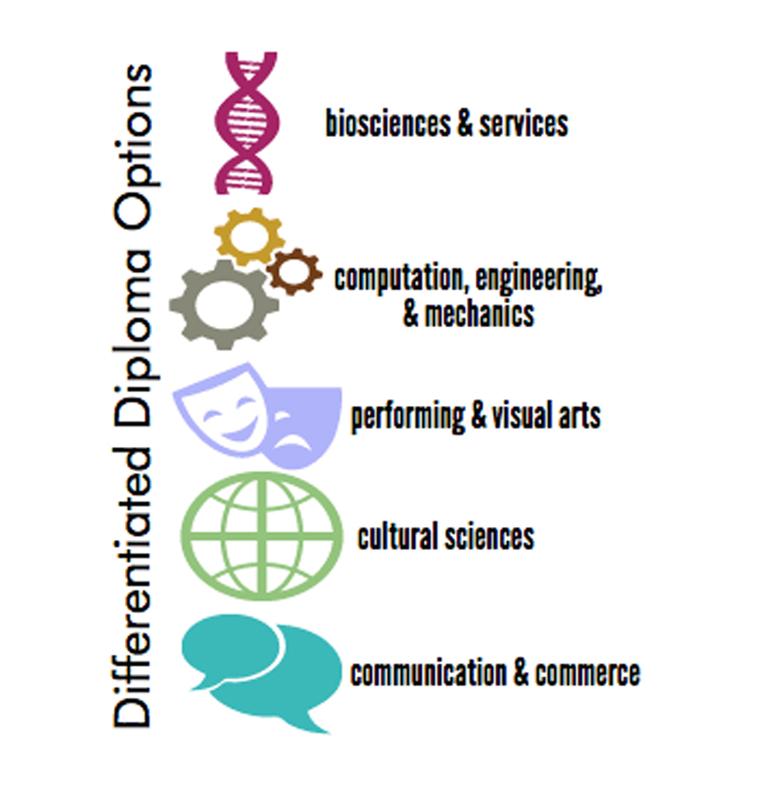Differentiated diploma allows choice
Jun 2, 2015
As the class of 2015 prepares to accept their diplomas, a senior study committee is working to redesign future ones.
“There’s been a large committee of over 20 people working towards having more engagement senior year. We came up with a number of different ideas, but the differentiated diploma is what really began to gain traction,” said Mr. David Williams, Language Arts.
The differentiated diploma is a model that would allow students to develop a focus in one of five subject areas: performing & visual arts, communication & commerce, biosciences & services, cultural sciences, or computation, engineering, & mechanics. However, according to Dr. John Schultz, Superintendent, students need not feel pressured to choose just one of these focuses.
“We’re not limiting a student. I think they can move within those five areas easily enough; this is not meant to track a student into one area of study,” Schultz said. “We still want to be sure that students and parents have a choice for the area of study they want to pursue.”
Beyond these five areas, students will have the opportunity to work towards a variety of levels. The differentiated diploma offers a focus diploma, an honors diploma, and a diploma of distinction. The standard HHS diploma with no focus requirement will be offered as well.
As is, state and district graduation requirements dictate 37 of a total 64 high school credits. Of the 27 leftover credits, some would be required to be clustered in a specific focus if a student sought a higher level diploma. This would still leave room for students to explore electives outside of their focus.
“A good amount of students are already graduating with distinction, so I would think our thresholds [within the differentiated diploma] are obtainable,” Williams said.
In 2014, 19 percent of HHS students graduated with a GPA of 3.75 or higher, making them already eligible for the proposed GPA component for graduating with distinction under the new model. The only difference with the differentiated diploma would be an added number of electives in a given subject area.
“Colleges will be able to value both the level (either distinction or honors) and also depth,” Williams said. “Competitive schools will be able to look at a particular student and say ‘Wow this kid graduated with distinction in biosciences,’ or whatever other field they choose.”
Claire Miller, senior, has been involved with the music department at HHS throughout her high school experience. She believes that graduating with a distinction in performing & visual arts would be applicable to her future.
“I think as a musician, I would benefit from graduating with distinction in the performing arts because I would have narrowed my focus to music and would have, potentially, a head start on college curriculum and material for my major,” Miller said. “Colleges may look favorably at that, depending on other coursework as well.”
Jefferson High School in Bloomington has an honors diploma, and Chaska High School has a version of the focus diploma, but the senior study committee could not find a model as comprehensive as the differentiated diploma.
The school board and the senior study committee are continuing to develop the differentiated diploma, but have several years of work to do to make it ready for the first diplomas in 2020. Overall, Schultz is excited to see the effects of the new program.
“As far as the future is concerned, I think when a student can talk about additional experiences as they are going to the high school, whatever that may be, there is a lot of benefit to that,” Schultz said.

